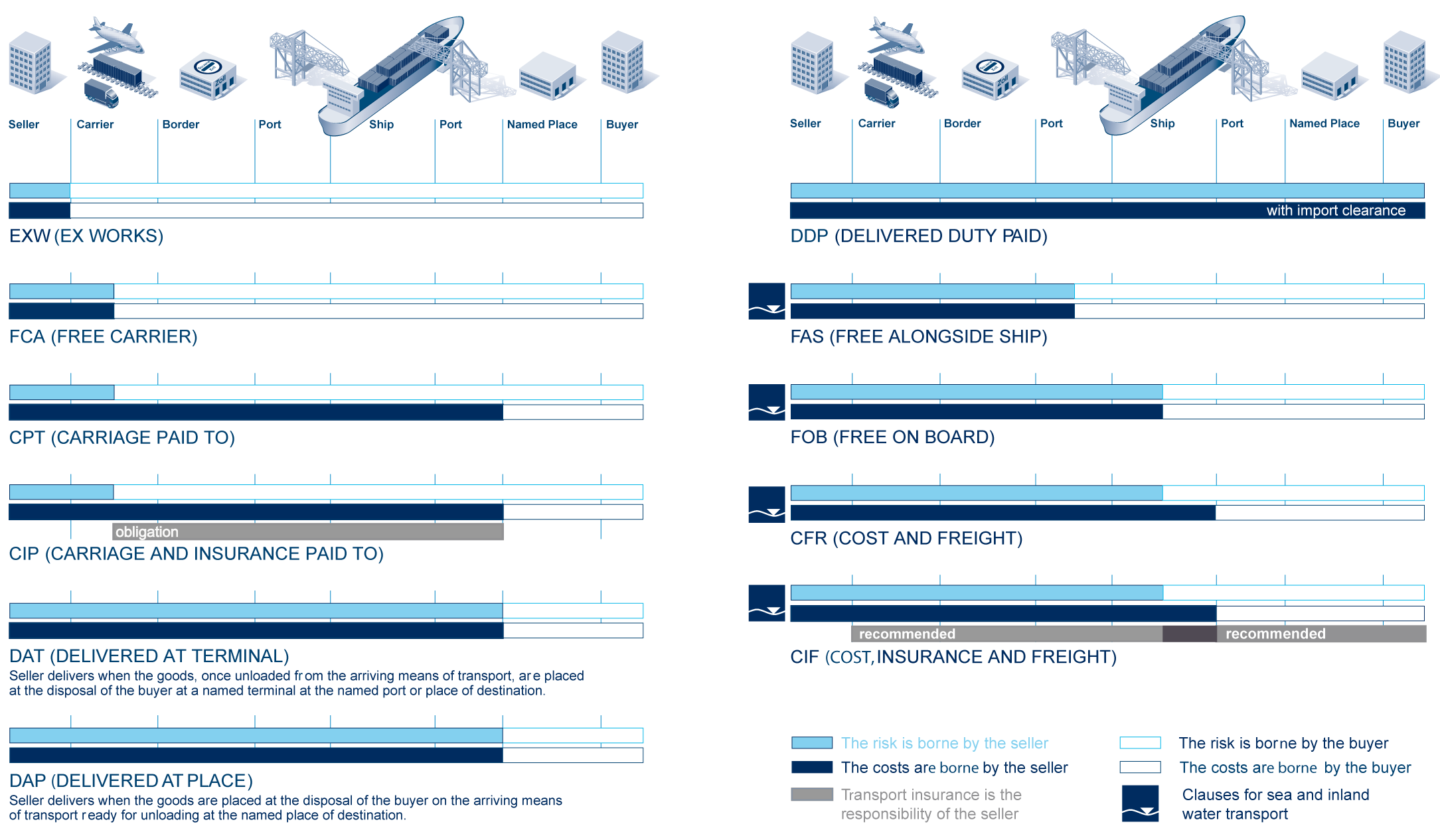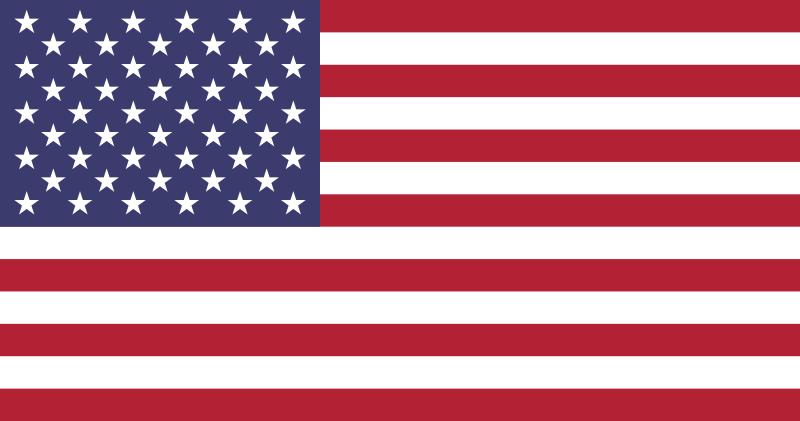
What are incoterms?
Incoterms are standard trade definitions most commonly used in international sales contracts. Devised and published by the International Chamber of Commerce, they are at the heart of world trade.
Among the best-known Incoterms are EXW (Ex works), FOB (Free on Board), CIF (Cost, Insurance and Freight), and DAP (Delivered at Place – replaces DDU), and FCA (Fee Carrier).
ICC introduced the first version of Incoterms – short for “International Commercial Terms” – in 1936.
The chosen Incoterms rule can only work if the parties name a place or port and specify the version of the Incoterm. (ICC- International Chamber of Commerce, January 1, 2011)
Example: « FCA 38 Cours Albert 1er, Paris, France Incoterms 2010 »
Versions of Incoterms preceding the 2010 edition may still be incorporated into future contracts if the parties so agree. However, this is course is not recommended because the latest version is designed to bring Incoterms into line with the latest developments in commercial practice.
Two Distinctions to be made Delivery location vs Carriage Paid To:
1. The named place is the place where goods are delivered by the seller and where risk transfers from the seller to the buyer: EXW, FCA, DAT, DAP, DDP, FAS, FOB
2. The named place differs from the place of delivery by the seller. Under these four Incoterms the named place is the place of destination to which carriage is paid to: CPT, CIP, CFR, CIF.

Rules for Any Mode or Modes of Transportation:
EXW – Ex Works
FCA – Free Carrier
CPT – Carriage Paid To
CIP – Carriage and Insurance Paid To
DAT – Delivered at Terminal
DAP – Delivered at Place
DDP – Delivered Duty Paid
Rules for Sea and Inland Waterway Transport:
FAS – Free Alongside Ship
FOB – Free On Board
CFR – Cost and Freight
CIF – Cost, Insurance and Freight

